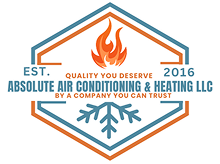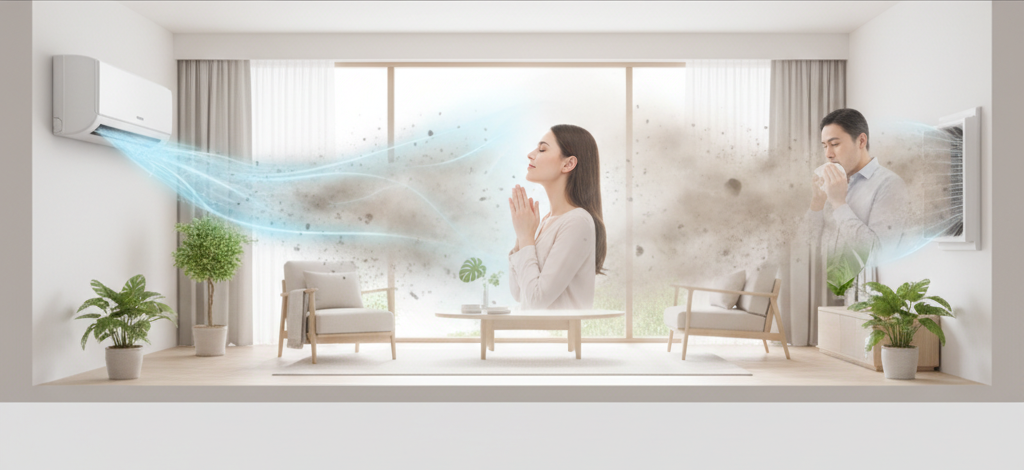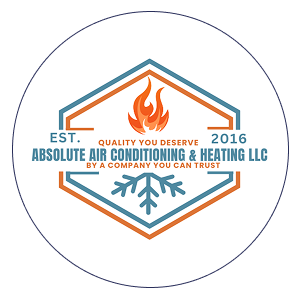Proper air conditioning services are crucial for the health and comfort of Las Vegas homes, directly influencing indoor air quality through filtration, circulation, and humidity management. Did you know that indoor air can contain two to five times more pollutants than outdoor air? Homeowners often grapple with dust, allergens, and moisture buildup that can trigger respiratory issues and discomfort. This article will guide you through how cooling systems impact air cleanliness, explore different filter types and humidity control methods, identify common local pollutants and advanced solutions, highlight the benefits of professional HVAC service, and offer tips for homeowners to monitor their air quality. You’ll gain insights into the mechanisms of air filtration, the importance of regular maintenance, the best filters for desert environments, dehumidification techniques for mold prevention, and smart technologies that optimize air quality. Throughout this discussion, you’ll see how Absolute Air Conditioning & Heating LLC’s repairs, tune-ups, and installations contribute to healthier indoor environments in Las Vegas. By understanding these essential insights, you can ensure your air conditioning system not only cools your home but also purifies and protects your family’s well-being.
How Does Air Conditioning Influence Indoor Air Quality?
Air conditioning influences indoor air quality by combining filtration, humidity control, and air circulation to remove pollutants and maintain a stable environment. A conditioned space is cleared of dust, pollen, and volatile compounds as air passes through filters, while refrigerant cycles extract excess moisture that would otherwise foster mold. For example, an efficient central system equipped with a pleated filter can capture particles down to one micron, significantly reducing allergen levels in real homes.
Beyond particle removal, air conditioning also balances indoor humidity to below 50 percent, preventing microbial growth on surfaces and within ductwork. Steady airflow distributes fresh, filtered air throughout living areas, diluting indoor contaminants. Understanding these influences sets the stage for exploring the key functions of AC systems in air quality control.
Those wanting to dive deeper into system operations can review The Ultimate Guide to Air Conditioning Service in Las Vegas, which explains how comprehensive AC services maintain healthy indoor environments.
What Are the Key Functions of AC Systems in Air Quality Control?
AC systems perform three core functions that improve indoor air quality:
- Filtration – capturing airborne particles before they circulate.
- Humidity regulation – reducing moisture to inhibit mold.
- Air exchange – circulating conditioned air and venting stale air.
Each function works together. Filtration traps dust and allergens with replaceable media. Humidity regulation uses coil cooling to remove water vapor. Air exchange fans circulate clean air and remove pollutants. These functions support a healthy indoor environment. They also show how filters and ducts affect air purity.
How Do HVAC Components Like Filters and Ducts Affect Air Quality?
Air filters and ductwork are fundamental HVAC components that determine the cleanliness of circulated air. Filters act as barriers, removing particles based on ratings such as MERV levels, while ducts serve as the conduit for conditioned air. Clean ducts ensure that filtered air maintains its quality, whereas accumulated dust or microbial growth within ductwork can reintroduce contaminants.
Properly sealed and insulated ducts prevent outdoor particles from entering through leaks and maintain airflow efficiency. High-quality filters fitted into well-maintained ducts create a closed loop of clean air distribution. Recognizing this relationship highlights the importance of regular maintenance in preserving indoor air quality.
For more clarity on scheduling professional upkeep, refer to How Often Should You Service Your Air Conditioner? to ensure your AC system maintains consistent air purity and performance.
Why Is Regular AC Maintenance Critical for Maintaining Good Indoor Air Quality?
Regular maintenance ensures that filters, coils, and blowers remain free of buildup that compromises air purity. Scheduled tune-ups include filter replacement, coil cleaning, and fan inspections to prevent dust accumulation and microbial colonization. For instance, removing a clogged filter restores airflow and prevents pressure drops that could bypass filtration and allow unfiltered air into living spaces.
Consistent upkeep also extends system longevity and maintains energy efficiency, indirectly reducing indoor pollution by avoiding wear-induced leaks and component failures. Understanding the maintenance impact on air quality naturally leads into selecting the right filter type for optimal performance.
Those curious about what’s included in maintenance can explore What Happens During a Professional AC Tune-Up?, which outlines each inspection step in detail.
What Types of Air Conditioner Filters Improve Indoor Air Quality?
Air conditioner filters differ in media density, particle capture, and airflow resistance. These factors affect indoor air quality. Basic fiberglass filters trap large particles above 10 microns. Pleated filters with higher MERV ratings catch finer dust, pollen, and some bacteria. A MERV 11 pleated filter captures up to 65% of one- to three-micron particles. This greatly reduces allergens in the air.
Choosing the right filter type involves balancing filtration performance with system airflow requirements.
How Do MERV Ratings and HEPA Filters Differ in Air Purification?
MERV ratings quantify a filter’s ability to trap particles of specified sizes, with higher MERV filters removing smaller pollutants but requiring stronger blowers. HEPA-grade panels, rated MERV 13 and above, achieve over 90 percent efficiency for submicron particles, including many bacteria and viruses.
In practice, MERV 8–11 filters offer a balance between capture efficiency and low resistance, ideal for many residential systems. Upgrading to HEPA panels delivers superior purification in homes with allergy or asthma concerns.
When deciding whether to handle maintenance tasks yourself or hire professionals, DIY vs Professional AC Maintenance: What’s Worth It? can help homeowners make cost-effective and safe decisions.
How Does HVAC Humidity Control Affect Indoor Air Quality and Health?
Effective humidity control via HVAC systems maintains indoor moisture within optimal ranges, directly protecting air quality and occupant health. Too much humidity fuels mold and dust mite proliferation on surfaces and within ductwork, while overly dry air irritates respiratory mucous membranes.
HVAC systems achieve dehumidification as warm air passes over cooling coils, condensing excess moisture that drains away. Controlled humidity also reduces off-gassing of volatile organic compounds from furnishings and building materials, further enhancing air purity.
Professionals often recommend reviewing AC Replacement vs Repair: When to Upgrade, which helps determine when upgrading to modern humidity-controlling systems may improve IAQ and comfort.
Why Is Professional HVAC Service Essential for Maintaining Indoor Air Quality?
Professional HVAC service addresses complex system needs that go beyond DIY maintenance. Certified technicians clean coils, inspect duct seals, calibrate sensors, and verify refrigerant levels to ensure peak performance. These steps prevent hidden leaks, microbial hotspots, and airflow imbalances that degrade air quality over time.
Engaging experts secures both immediate improvements and long-term system health, leading to specific service benefits.
When planning your next air conditioning service visit or maintenance budget, How Much Does Air Conditioning Service Cost? provides clear insights into typical expenses and what you can expect from professional care.
Final Thoughts
Healthy indoor air begins with understanding how air conditioning systems filter, dehumidify, and circulate breathable air. Selecting the right filter, controlling humidity, and investing in advanced purification technologies all contribute to cleaner living spaces. Professional HVAC service from Absolute Air Conditioning ensures these elements work together seamlessly for lasting benefits. Take action today by scheduling maintenance, upgrading critical components, or consulting with Absolute Air Conditioning & Heating LLC to keep your home’s air as fresh as the desert breeze.





